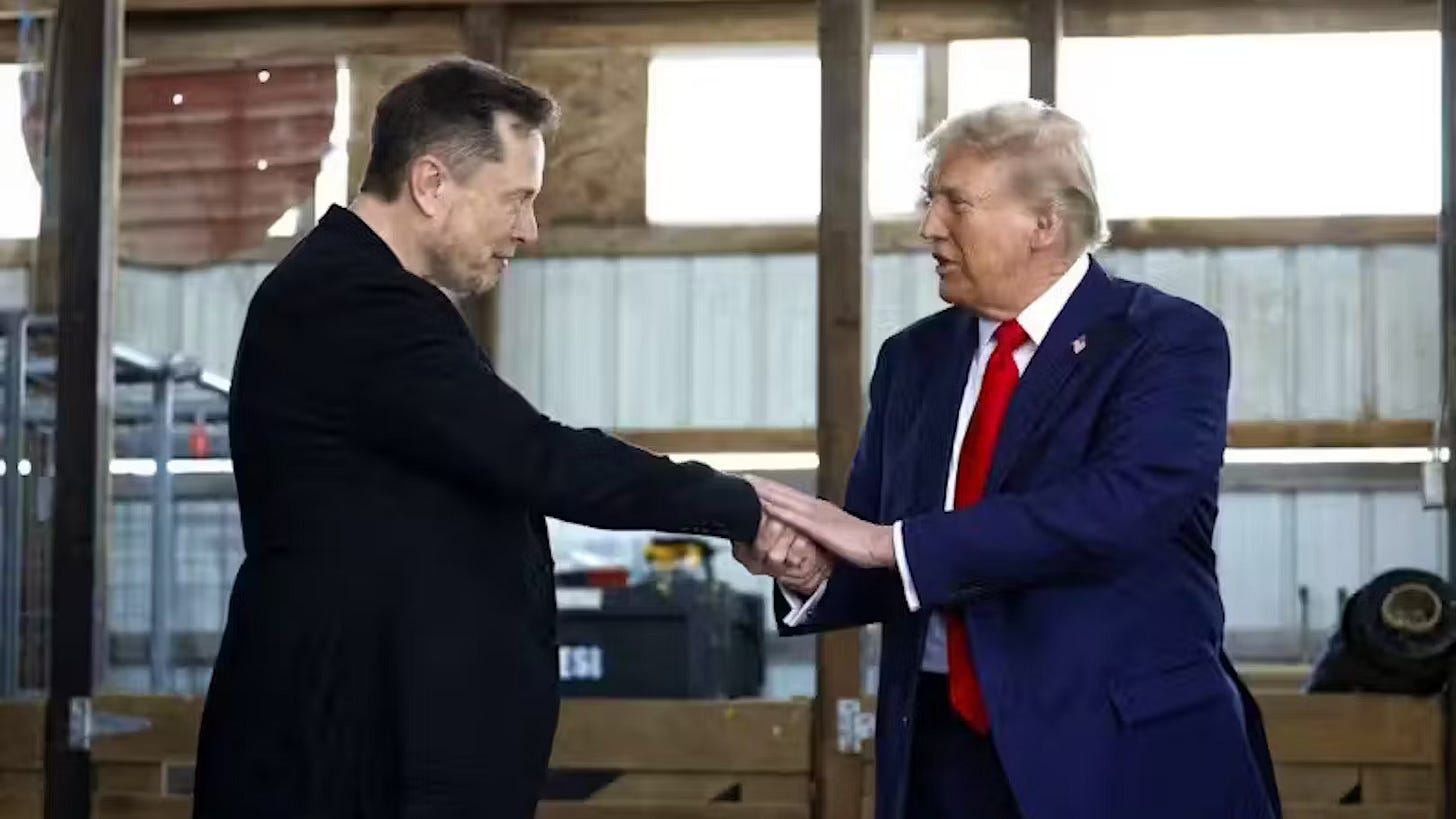The Access Presidency Under Trump
And what the personalization of power means for the economy and politics
Elon Musk meeting reporters in the Oval Office and sifting through closely guarded agency information as part of his DOGE initiative. On-again off-again tariff policy that yields to heads of state attempting to flatter and curry favor with Trump. Wild gyrations in the stock market in reaction to a few words from the White House.
These are all reflections of a remarkable turn in American politics: the rise of an “access presidency.” Donald Trump’s personalization of power is upending decades of policy consensus and threatening a bedrock principle of our republic: that democracy is of, by, and for the people. With that personalization comes a new era of policy uncertainty.
The separation of powers, a system of checks and balances, a strong rule of law, and norms of restraint among major political figures have long defined American democracy. In my previous post here at the The Good Society, I wrote about the worrisome ongoing erosion of the rule of law – and the turn toward weaponizing the law. Trump’s personalization of power is a parallel trend to that. And with it, other features of our democracy are being heavily pressure-tested.
The office of the executive is a massive enterprise, comprising not only the presidency but also a vast array of agencies and departments of the bureaucracy that conduct the business of government, as well as the military command, law enforcement, and more. Most government agencies and bureaucracies have evolved over time – with Congressional input – to have well-defined institutional directives. While presidents nudge them in one direction or another according to their policy goals, they mostly chart a relatively consistent path forward. Think for instance of food safety enforcement, or collecting taxes, or running embassies and diplomatic relations abroad. Some, like the Department of Justice or the IRS, traditionally have considerable independence from the White House.
Trump’s selection of people to run government agencies and departments – most of whom, like the FBI’s Kash Patel or Defense’s Pete Hegseth, were both deeply critical of those very agencies and loyal to Trump – was a clear sign that he sought to diminish their authorities and independence and assert his own dominance over them. The creation of Musk’s Department of Government Efficiency’s outside of Congressional purview was another sign of the desire to do an end-run around traditional institutions and procedures.
Of course, Trump has never tried to blur or distract from these efforts. To the contrary, he trumpets them with fanfare. They are part of his appeal among his political base. These moves build his political brand as a wrecking ball to dysfunctional and bloated government and out-of-touch elites and experts.
The result of this centralization of power, along with Trump’s deal-making persona and penchant for attention and flattery, is a presidency that now revolves around access to Trump and his inner circle. Major policies come down to the desires and demands of a single person.
This is exactly what the Founding Fathers and the Federalists were trying to avoid. And it is easy to see why. When power is personalized, wild policy swings, uncertainty, and corruption are the result.
Take the radical swings in tariff policy in recent weeks. After imposing the steepest tariffs on foreign goods that the country has seen in a century, Trump quickly backed off when the stock market cratered, telling reporters that the decision came “from the heart” without consultation. He then ratcheted up tariffs on China, and in recent days has suggested that they will come back down. Business leaders are reeling from the uncertainty as they consider investments and hiring.
The link to Musk and DOGE reflects the same personalization. Without legal authority, Trump gave Musk unparalleled access to agency and department records, including personal information on taxpayers. Some of those agencies were also charged with regulating Musk’s own businesses, a clear conflict of interest.
In important ways, these moves reinforce Trump’s power by demonstrating that policy runs through him alone. Catching his ear can be worth billions. Accessing him can make the difference between oversight or a free hand in business dealings. It can mean the difference between a favorable relationship with the United States or global marginalization.
That will come to increasingly define American politics in the next few years. Expect the unexpected as the new access presidency rules the day.
Leading image is Elon Musk greeting Donald Trump (via Haute.at).




